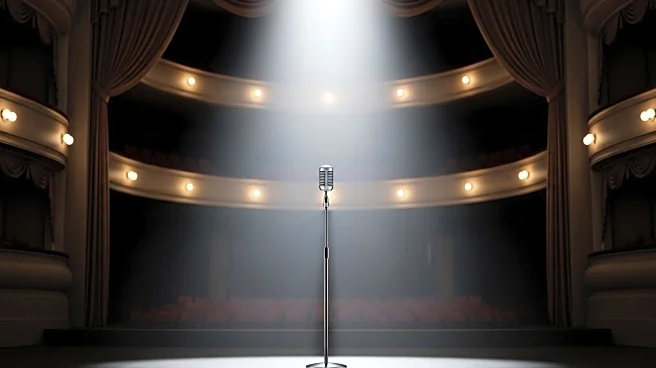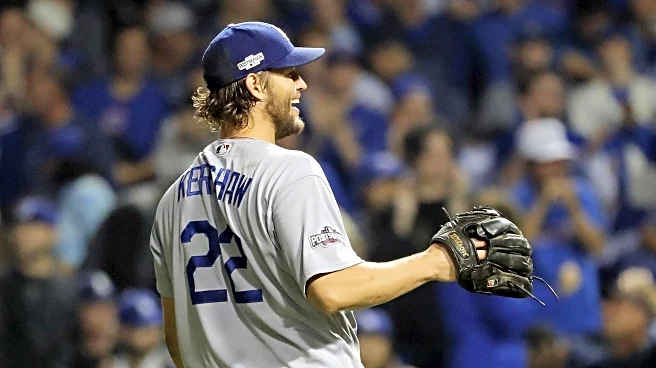What's Happening?
Jimmy Kimmel, host of 'Jimmy Kimmel Live!', recently faced significant backlash following a controversial monologue that aired after his return from a suspension by ABC. The line, 'That's not legal, that's not American,' was delivered during his first monologue back and has since ignited a national debate. The controversy stems from Kimmel's criticism of calls from the FCC chair for networks to discipline affiliates. In response, ABC suspended Kimmel for six days, and two major affiliates preempted the broadcast, affecting approximately 25% of ABC's local stations. The incident has become a flashpoint in discussions about the intersection of comedy, corporate risk, and regulatory pressures. An open letter signed by 400 celebrities, backed by the ACLU, protested the suspension, defending free speech and highlighting the tension between artistic expression and corporate interests.
Why It's Important?
This incident underscores the ongoing tension between creative freedom and corporate responsibility in the entertainment industry. The backlash against Kimmel's monologue highlights the delicate balance networks must maintain between allowing provocative content and managing potential regulatory and public relations fallout. The suspension and preemptions reflect the significant influence of the FCC and affiliate networks in shaping broadcast content. This situation also raises questions about the future of late-night television, as networks may become more cautious in their programming decisions to avoid similar controversies. The debate has polarized audiences, with some viewing the monologue as a necessary critique of political violence, while others see it as a reckless generalization. The outcome of this controversy could set a precedent for how networks handle similar situations in the future, potentially leading to more stringent content oversight and a shift in the landscape of late-night comedy.
What's Next?
In the wake of this controversy, networks may consider implementing stricter content guidelines and increasing editorial oversight to prevent similar incidents. Affiliates might demand more control over the content they broadcast, leading to potential conflicts with network executives. Comedians and writers could face increased pressure to self-censor, potentially altering the nature of late-night satire. The response from audiences and advertisers will be crucial in determining the long-term impact of this incident. If networks perceive a risk of financial penalties or loss of viewership, they may opt for safer, less controversial programming. This could lead to a homogenization of late-night content, with fewer opportunities for bold, boundary-pushing comedy.
Beyond the Headlines
The controversy surrounding Kimmel's monologue also touches on broader cultural and ethical issues, such as the role of comedy in addressing sensitive topics and the limits of free speech in a corporate context. The incident highlights the challenges faced by entertainers in navigating the complex landscape of modern media, where public opinion and regulatory pressures can significantly impact creative expression. The debate also reflects deeper societal divisions, with differing interpretations of what constitutes acceptable discourse in the public sphere. As networks and comedians grapple with these issues, the incident may prompt a reevaluation of the role of satire in contemporary culture and its ability to provoke meaningful dialogue.









